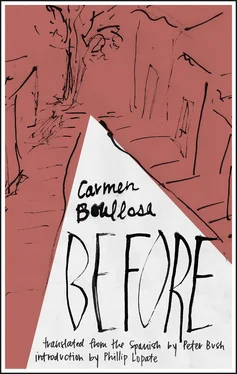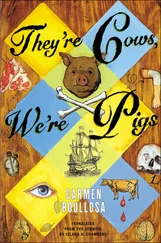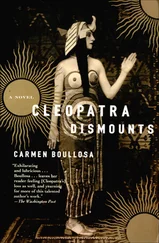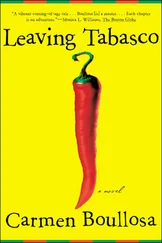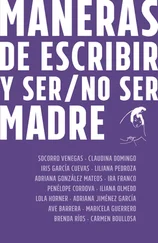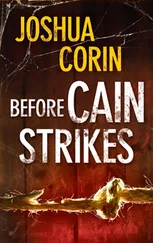Carmen Boullosa - Before
Здесь есть возможность читать онлайн «Carmen Boullosa - Before» весь текст электронной книги совершенно бесплатно (целиком полную версию без сокращений). В некоторых случаях можно слушать аудио, скачать через торрент в формате fb2 и присутствует краткое содержание. Год выпуска: 2016, Издательство: Deep Vellum Publishing, Жанр: Старинная литература, на английском языке. Описание произведения, (предисловие) а так же отзывы посетителей доступны на портале библиотеки ЛибКат.
- Название:Before
- Автор:
- Издательство:Deep Vellum Publishing
- Жанр:
- Год:2016
- ISBN:нет данных
- Рейтинг книги:4 / 5. Голосов: 1
-
Избранное:Добавить в избранное
- Отзывы:
-
Ваша оценка:
- 80
- 1
- 2
- 3
- 4
- 5
Before: краткое содержание, описание и аннотация
Предлагаем к чтению аннотацию, описание, краткое содержание или предисловие (зависит от того, что написал сам автор книги «Before»). Если вы не нашли необходимую информацию о книге — напишите в комментариях, мы постараемся отыскать её.
Part bildungsroman, part ghost story, part revenge novel,
tells the story of a woman who returns to the landscape of her childhood to overcome the fear that held her captive as a girl. This powerful exploration of the path to womanhood and lost innocence won Mexico's two most prestigious literary prizes.
Carmen Boullosa
Texas: The Great Theft
Before — читать онлайн бесплатно полную книгу (весь текст) целиком
Ниже представлен текст книги, разбитый по страницам. Система сохранения места последней прочитанной страницы, позволяет с удобством читать онлайн бесплатно книгу «Before», без необходимости каждый раз заново искать на чём Вы остановились. Поставьте закладку, и сможете в любой момент перейти на страницу, на которой закончили чтение.
Интервал:
Закладка:
All this is prompted by a memory I want to recount. It belongs to a year before the incidents with the petticoat, the medal, and even the one with Enela, probably 1962.
One Sunday afternoon Juanita, who’d just started working at home, stayed with us while Esther and Dad went with an “intellectual” friend of theirs to see Manuel Capetillo fight a bull. That’s what they said, “Don Pedro Vásquez Cisneros is an intellectual.” I didn’t understand what they meant: he wasn’t a young man with his long grayish beard and unkempt hair, he’d sit and smoke his pipe in an armchair that otherwise had no presence in our house, it was only noteworthy when Don Pedro came to flaunt himself in his gray beret, which heaven knows why he never took off, perhaps because he was bald or because he could imagine how much we coveted it, although I doubt that because I don’t think he had any intuition of us, we weren’t at all important to him. Esther and Dad felt a burning affection for this “intellectual,” pronounced with deep reverence his name and the label they’d assigned to him, and listened to him hold forth, open-mouthed, respectful, as if listening to a sermon in church. Shortly after his visits some blue stickers appeared on car windscreens with a drawing of a fish and the slogan Christianity, yes, Communism, no that someone had gone out of their way to plaster on shop and car windows.
I perceived in Esther and Dad’s voices (I’m not sure about on their faces, they were parking the car and we were in the back seat), if not the same kind of admiration they felt for Vásquez Cisneros, certainly the same volume of admiration, when they spotted Elda Peralta coming out of the Elizondo bakery carrying her bag of bread, and the admiring tone was not for her (discreetly dressed in low shoes, a gray woolen skirt, a very light pink sweater, or so I thought, like any lady, like my Mom, not slimmer or taller, in a skirt that didn’t allow her legs to open much but not so tight as to warrant small coquettish steps), but for the man she was linked to, a writer (called Spota?), one of those mythical beings whom Dad thought possessed the iron will he had always lacked to devote himself to the humanities as he would have liked, because his family persuaded him he must study something with an economic future, something to guarantee a seat at the banquet, at the grande bouffe the era would create from the magic of chemistry: chocolates made from next to nothing, jellies hardened by fresh air, sausage that never went bad, colorants and emulsifiers that enclosed in glass phials every possible tidbit, every morsel of food, mouthfuls of wealth, and not only that, also confidence in the abilities of men, intoxicated by a new renaissance that would poison the air, the rivers, the seas, the lungs of the workers in their industries, and, as if they weren’t enough, those living in outlying towns and big cities. But before they realized their devastating impact, they copied patents and invented others to fill our hitherto pure air with a new nation…We didn’t know then that fish were fleeing our rivers in search of water, their scales slimy with grease, that our jungles were cadavers of jungles, that the sea tossed detergent foam at the coast and dark patches of oil…
But I’m haranguing you with speeches that I’ve tried to understand and emulate, seduced by my visit to Raquel’s house a long time ago, from the position I now occupy…I was contracted (in a manner of speaking) to her apartment. I felt so happy surrounded by books and pictures, by paper and notebooks, by dogs and the light that poured through the window!..Raquel would take her glasses off and on when she heard me walking near her till she stopped and looked up when she heard my footsteps…“Raquel Tibol!” I called her by her first and last name. She didn’t attach the least importance to my voice. That was when I was told to leave her apartment. Not that Raquel considered anything I’m telling you here. Her father was certainly not an industrialist and she wasn’t worried by sand turning into chocolate or the bones of dead cows becoming sausages…But Raquel didn’t find out about me because she never stopped thinking . I didn’t want to deceive her as I don’t want to deceive myself when telling you what happened at home that afternoon. We were playing in the garden as if the afternoon would never end— I felt no wind could disturb our dolce far niente , absorbed in a dragonfly, hanging iridescent, sometimes bluish, on the still air, accompanying us, fluttering her wings beautifully, motionless, chewing (as in chewing gum) its place in the fresh air of the garden, ruminating on the wing, as much a sister to us as we were to her— till my sisters took me away to watch television. We turned it on: the bullfight appeared, not from the seats where Esther and Dad were watching it, as tiny as everybody else, defeated by a paternal eye, by an all-powerful eye, distant or near, as it suited. The screen seemed it would burst from so many people, so many olés , so much overexcitement vibrating in the crowd.
However much I twisted it (my head, naturally, I wearied of looking at the ceiling and counting the blobs) I could find no better game than the boring search for Esther and Dad among the dots. But how could I know who they were? The television reproduced in black and white; Esther and Dad were not the only ones wearing hats, but all the heads showed up identically. I read repeatedly the advertisements on the barriers and would have preferred to do anything but sit watching television.
But we stayed in front of the television set, my sisters bored like me, and Juanita who I suppose was very young and white as a lizard’s belly, fresh from the Opus Dei training school for domestics. Poor Juanita was a donkey (I can’t really find a better word, or more measured term to describe her). She couldn’t cook (in the training school she’d been convinced what she did in her house was not “cooking”), couldn’t sweep, or so she said, because she wanted to use the vacuum cleaner in the garden and on the terrace, and revealed her character in a strange proclivity: she was fond of the mixer, which she would play with, empty, sitting there, relaxing, an oilskin top over the glass, yanking on the control handle to hear it “sing,” as Juanita herself put it to me.
She did concentrate on the bullfight. Malena, Fina, and I–I don’t know who started first— climbed a staircase of words escaping boredom like agile acrobats:
tequila
late
tea
ear
artistic
icthysaurus
usual
allow
owed
The last two letters of the word had to be the first two of another not previously used in the game. It was my turn to recite one that would begin in “ed” (it would have been edify ) when I noticed how Juanita, quite unaware, was resting her hand on her embroidery needle that they’d erroneously not expunged from her — I mean the skill or the enthusiasm — in the “training” school classes. I could clearly see the needle penetrating her skin and Juanita still staring at the screen, her arm continuing to push her hand so the needle went further in…
“Your go!”
“Your go!”
“Come on or you’re out!”
I had to blurt out “Lift your hand up!” pointing at Juanita, as in my view and my sisters’ the needle slowly, inexorably kept going in until it came out the other side of her clean palm, without a spot of blood. Malena lifted Juanita’s hand: a wooden palm, covered in stucco: a saint, pierced, a needle transfixing incorporeal flesh, engendered by abstinence, fasting, and hair shirts.
We rushed to the telephone to speak to Grandma, incorrectly dialed 16-17-50 . A man answered, recriminated, told me to take more care, a man with an opaque voice whom I guessed was fat, heavy, and, no doubt, miserable. “I’m sorry.” The argument started with my sisters over whether we should look for the number in the white or yellow pages, first carefully leafing through impossible pages full of abbreviations: a coded language over which we argued without a clue as to how it worked till in a temper we screwed up and tore the inscrutable pages.
Читать дальшеИнтервал:
Закладка:
Похожие книги на «Before»
Представляем Вашему вниманию похожие книги на «Before» списком для выбора. Мы отобрали схожую по названию и смыслу литературу в надежде предоставить читателям больше вариантов отыскать новые, интересные, ещё непрочитанные произведения.
Обсуждение, отзывы о книге «Before» и просто собственные мнения читателей. Оставьте ваши комментарии, напишите, что Вы думаете о произведении, его смысле или главных героях. Укажите что конкретно понравилось, а что нет, и почему Вы так считаете.
